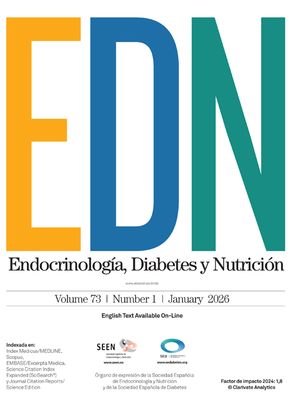Amiodarone-induced thyrotoxicosis (AIT) is a life-threatening, common clinical condition whose clinical signs and response to treatment may vary among patients.
MethodsThree patients treated with amiodarone for atrial fibrillation who developed AIT at least 36 months after starting treatment are reported. Thyrotoxicosis worsened the underlying cardiac conditions and was resistant to treatment with a combination of dexamethasone 8–12mg/day IV, thioamides 45mg/day PO, beta blockers, and potassium perchlorate 800–1000mg/day PO. Two patients achieved sustained euthyroidism after 12 and 32 days of combined treatment, while the third required total thyroidectomy.
ConclusionA combination of thioamides and potassium perchlorate is an adequate treatment for AIT in patients refractory to thioamides. Use of this combination should be considered for patients with mixed AIT or AIT of unclear etiology.
La tiroiditis inducida por amiodarona (TIA) es una entidad clínica frecuente, con distintas formas de presentación, respuesta variable al tratamiento, y que puede ser potencialmente fatal.
MétodosSe presentan tres pacientes con fibrilación auricular, que desarrollaron una TIA tras al menos 36 meses de exposición al fármaco. El hipertiroidismo asociado no respondió a la terapia farmacológica convencional, conllevando un empeoramiento franco de la cardiopatía de los pacientes, lo que motivó la indicación de tiroidectomía total, previa instauración de una terapia basada en la combinación de dexametasona 8–12mg/día iv, tionamidas 45mg/día vo, beta-bloqueantes, junto perclorato potásico 0,8–1g/día vo. Dos pacientes normalizaron las hormonas tiroideas periféricas tras 12 y 32 días de terapia combinada.
ConclusiónLa combinación de tionamidas y perclorato potásico es una alternativa terapéutica eficaz en la TIA tipo I en pacientes refractarios a terapia convencional. Debe valorarse su empleo en pacientes con TIA mixta o etiología no aclarada.



